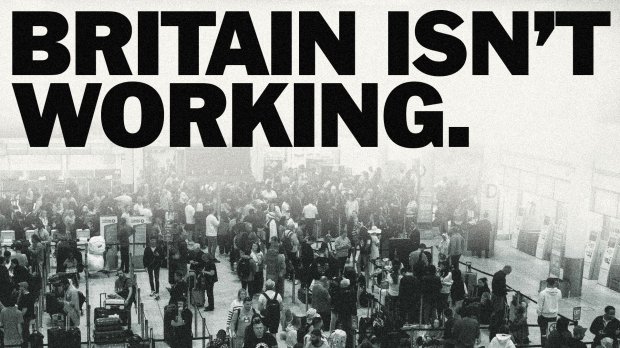Twenty years ago, the Scottish parliament was reconvened after a lapse of almost three centuries. The logic for devolution was clear enough: that Scotland has discrete issues, and ones that were not always solved by London government. Devolution would allow ‘Scottish solutions for Scottish problems’. There was, in Westminster, a feeling that MPs could worry less about these problems. Public health in Glasgow, previously one of the biggest problems in the UK, would be someone else’s problem. Let the MSPs see if they could do any better.
The news this week should shock people on both sides of the border. Scotland has the worst rate of deaths from drugs in Europe, with numbers up by a shocking 27 per cent since 2017. The deaths are concentrated in Glasgow, which has long had some of the deeply ingrained poverty in the developed world. Life expectancy in the city is worse than in Iran and Algeria. This was true ten years ago, and since then Glasgow has fallen further behind. This is a combination of both the UK welfare state and devolved health policies failing, badly.
Since 2010, welfare reform has been at the top of the government agenda. In many regards, the tough love has worked: levels of employment have risen quickly and unemployment is now at a 45-year low. Moving people from welfare to work has been an effective remedy for poverty. Material deprivation has fallen significantly since 2010, in spite of the constraints on government spending. Inequality is around a 30-year low. Wages are rising at the fastest rate for 11 years.
A rising tide lifts many boats — but not all. The problem in Britain continues to be communities that do not respond to an improving economy: among people who are not looking for work, in places that have been ground down by drug addiction, family breakdown and personal debt. Hence the anomaly: while employment goes up, rough sleeping has doubled, and drug abuse soars.
New ideas are needed. Heroin users are unlikely to be ushered into minimum-wage jobs. The problem is complicated, and any solution will be expensive. In Doncaster, for example, a ‘Complex Lives’ initiative has sought to combine the issues of homelessness, drug-taking and economic inactivity and seek out those in need rather than waiting for people to come forward for help. There have not been enough examples of this in Scotland: the devolved parliament has not been much of a policy laboratory. Too often, it has prided itself on stopping new ideas coming from London.
The old theory commonly advanced for Britain’s drug-taking — that the ‘war on drugs’ has failed — is often advocated by middle-class recreational drug users. The idea that prohibition has failed is built on two beliefs: firstly, that we do, in practice, have a policy of prohibition; and secondly, that punishment and rehabilitation are mutually exclusive. We do, it is true, have severe penalties for big-time drug-dealers and drug mules, but this does not extend to drug users. While in theory they can be jailed for possession, strong penalties are rarely used. They are far more likely to receive a caution — or the police will turn a blind eye altogether.
But if we did more effectively prosecute drug users, would that mean that they could not then receive help? In an effective criminal justice system, prosecution would be the first stage in a process to help drug users — the stage that forces them to accept that they need help. Too often, at present, the state sponsors drug use by handing out methadone in the hope that it will prove less harmful than the heroin for which it is used as a substitute. The result is that many become addicted to methadone instead.
Portugal is often raised as a possible example for Britain to follow. It is true that the country has decriminalised possession of small quantities of drugs and that it now has one of the lowest rates of drug deaths in Europe. But many of those who advocate the Portuguese model fail to understand it. In practice, the consequences of being caught with drugs are far harsher than in Britain. Users can be fined heavily, have their passports confiscated, be banned from certain places and be forced into rehabilitation.
Look elsewhere in Europe, and many of the countries with the highest death rates from drugs, such as Norway and Sweden, tend to be those with the most liberal policies. Conversely, some of the countries with the lowest rates of drug deaths are those with the most prohibitive policies — South Korea and Japan, for example, threaten drug users with long sentences, and their rates of drug deaths are less than a tenth of that in Britain. Advocates of liberal drug policies like to claim that their ideas are ‘evidence-based’ — but that is a piece of evidence that they are apt to ignore.
Nothing is simple where drugs are involved. On the one hand, you can look at young lives wasted by heroin addiction and despair. On the other you can look at the surviving Rolling Stones, who have ingested industrial quantities of drugs over the years and have not only lived to tell the tale but are still working in their mid–seventies.
Overall, though, middle-class drug users who advocate decriminalisation if not legalisation fool themselves if they think Britain has no great problem with drugs. It does — and it is something for which both London and Edinburgh must take responsibility.
Got something to add? Join the discussion and comment below.
Get 10 issues for just $10
Subscribe to The Spectator Australia today for the next 10 magazine issues, plus full online access, for just $10.
You might disagree with half of it, but you’ll enjoy reading all of it. Try your first month for free, then just $2 a week for the remainder of your first year.














Comments
Don't miss out
Join the conversation with other Spectator Australia readers. Subscribe to leave a comment.
SUBSCRIBEAlready a subscriber? Log in